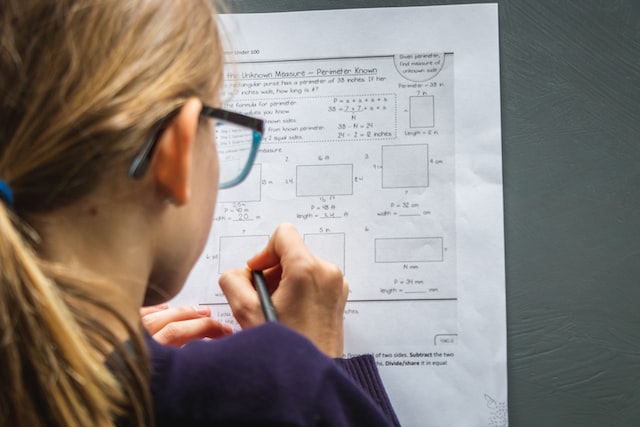Is there such a thing as a natural ability for maths? Some people seem to be able to grasp complex mathematical concepts with ease, while others struggle to even add up simple numbers. So what is the secret to being good at maths? Is it simply down to practise and hard work, or are some people just born with a ‘maths brain’? Let’s take a look at some of the latest research on this topic to find out more.
Define what "good at math" means
Being good at math means having the ability to understand and execute mathematical concepts efficiently. It requires the capacity to reason logically, think abstractly and use numerical skills effectively. Whether someone is naturally talented in these areas or has actively developed these abilities through practice, this kind of strong engagement with mathematics yields a depth of comprehension that goes beyond simply learning formulas. Mastery of meaningful applications and the development of complex analysis techniques is what sets apart a person who is "good at math." Furthermore, individuals who possess strong proficiency in mathematics often demonstrate enthusiasm when working on mathematical problems or discussing mathematical theories.
Why some people think they can't be good at math
Many people find mathematics intimidating and feel like they will never be good at it, often because they experienced difficulty early on. However, math is simply a tool that enables us to approach problems in an organized, strategic manner. With enough practice, almost anyone can learn to become proficient with this valuable skill - it just takes some dedication and the right support system. Those who struggle with mathematics should always remember that there are plenty of resources available to help them develop a stronger understanding of the material. With some time, practice and patience even the most challenging mathematical concepts can become a breeze!
The benefits of being good at math
Math skills can offer a number of advantages to a person in many stages of life. Being proficient at math can give someone an edge in such pursuits as academics, business, or even everyday finance. Having the ability to mentally complete a mathematical equation can make complicated problems much easier to comprehend and consequently discover solutions for. Those with a knack for math may find it easier to interpret charts and graphs, which can provide insight into various situations. Additionally, strong math skills can also help with anything involving data analysis as well as budgeting and spending wisely. It's clear that having a good understanding of math can be advantageous when navigating through daily responsibilities or while advancing careers.
How to become good at math
Becoming good at math requires dedication and practice. Investing time to study math topics are necessary; this includes reading up on concepts and actively solving problems. It can be difficult to stay motivated, but forming a study group with your friends can help keep you accountable and challenge you to improve. Additionally, break down the problems into small manageable steps so that it is much easier to understand and solve. Lastly, don't be too hard on yourself if you make mistakes - use them as opportunities to learn from because practice gives more confidence in math.
Real-life examples of people who became good at math later in life
There is no doubt that having a strong background in math from a young age can be beneficial and open many doors. However, it is possible to become good at math later in life. In fact, there have been numerous examples of people who started learning mathematics well into adulthood and went on to achieve considerable mastery of the subject. For example, Dr. Abraham Arcavi was an illiterate peasant farmer when he learned his first math equation at age 33; now six decades later, he holds multiple advanced degrees in mathematics and has published papers on advanced concepts such as algebraic topology. Similarly, Marian Small only picked up her first spelling book at age 25 before deciding to pursue a career in mathematics education. At this point in her life she was raising four children on welfare payments—but with persistence and hard work she earned a PhD in mathematics and went on to write twelve books on the subject. Such inspiring tales of late-in-life achievement are a testament to the power that drive can have even when starting—or restarting—from scratch.
In conclusion, being good at math is relative. Some people think they can't be good at math because they didn't have a great experience with it in school or they've heard that some people are "just born good at it." However, there are benefits to being good at math and ways to become better at it if it's something you're interested in. If you want to improve your skills, consider taking an online class or working with a tutor. And remember, plenty of people who thought they were bad at math ended up becoming excellent mathematicians later in life – so don't give up hope!

